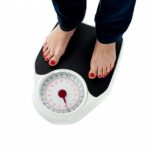Science And Research
The consumption of saturated fats at certain times of the day may “jet lag” internal body clocks and lead to diabetes and obesity, according to a new study conducted by Texas A&M University researchers. The body’s circadian clock keeps inflammation at bay and regulates the local timing of critical cellular processes that are important for …
Read More

Stepping on the scale each day may seem like a normal part of healthy weight control, but a new study suggests that this behavior could be hazardous for adolescents. Researchers from the University of Minnesota found that increases in self-weighing was linked to more concerns about weight, depression and decreased body satisfaction in young women. …
Read More

Depending on the size of your food package, your perception of a healthy portion size will vary, according to a new study from the European Food Information Council (EUFIC) and the University of Surrey. The study, which included 13,177 participants from six European countries, found that men were more affected by larger pack sizes and …
Read More

Teaching children to chew slowly can prevent them from gaining excessive weight, according to a new study from the University of California, San Diego. Waiting 30 seconds between bites of food enables kids to realize when they’re full, the researchers found, and keeps them from overeating. “To lose weight, you need to stop eating. But …
Read More

On any given day, most people eat for about 15 hours or longer. That’s one of the key takeaways from a recent study that measured how a specific mobile app records food and beverage intake. Over 150 participants were a part of the study, which also found that three meals a day aren’t the norm …
Read More

Researchers at the University of North Carolina and uBiome are recruiting members for a new study that will address the role of the microbiome in eating disorders. Participation in the study is free, and those who are part of the study will receive a personalized, detailed report on the state of their own microbiome. The …
Read More

Male teenagers battling excessive weight are more susceptible to developing heart failure later in life, according to a new study conducted by Sahlgrenska Academy researchers. Scientists kept tabs on more than 1.6 million Swedish males from childhood and beyond for over 35 years. Interestingly, the heightened risk of heart issues was noted in teens who …
Read More

Teenagers who think they weigh more than they actually do may be more likely to be overweight or obese as adults, according to a study published in Psychological Science. Using the National Longitudinal Study of Adolescent Health, researchers asked participants to rate how they viewed themselves in terms of their weight. They found that misperceptions …
Read More

The tactics that cage fighters use to lose weight before a fight are alarming and dangerous, according to a new survey published in the British Journal of Sports Medicine. The survey included 30 cage-fighter athletes who were competing in five different weight classes. In cage fighting, which is technically called mixed martial arts, there are …
Read More

When it comes to maintaining and achieving a healthy weight, many Americans may be missing the mark, according to a recent national survey. The poll, commissioned by Orlando Health, found that only 1 in 10 people thought that psychological well-being was a factor when it came to weight loss. “In order to lose weight and …
Read More
 Eating Disorder Self Test. Take the EAT-26 self test to see if you might have eating disorder symptoms that might require professional evaluation. All answers are confidential.
Eating Disorder Self Test. Take the EAT-26 self test to see if you might have eating disorder symptoms that might require professional evaluation. All answers are confidential.
Find a Treatment Facility Near You
Click on a state below to find eating disorder treatment options that could be right for you.









 Eating Disorder Self Test. Take the EAT-26 self test to see if you might have eating disorder symptoms that might require professional evaluation. All answers are confidential.
Eating Disorder Self Test. Take the EAT-26 self test to see if you might have eating disorder symptoms that might require professional evaluation. All answers are confidential.